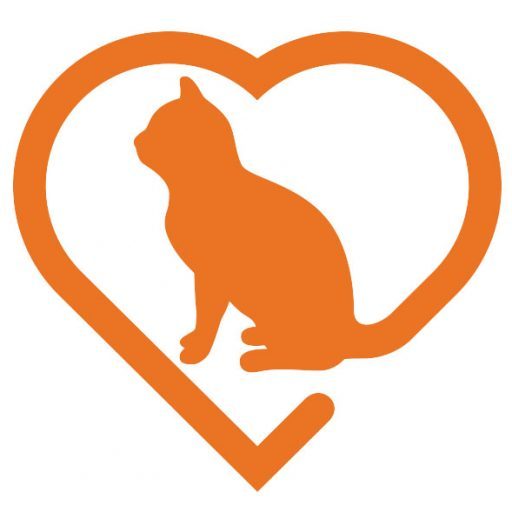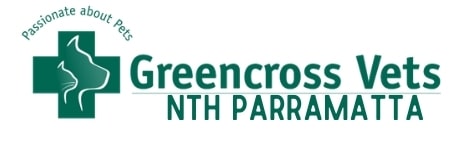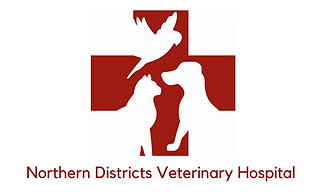CatRescue 901

FIV – Feline Immunodeficiency Virus
FIV (Feline Immunodeficiency Virus) is caused by a retrovirus that breaks down the immune system’s ability to fight of f disease. It cannot be spread to people or other species; but it can be passed from cat to cat in very specific circumstances.
One thing FIV is NOT is ‘Feline AIDS’. As with HIV, only the final, terminal stage of FIV is considered equivalent to the onset of AIDS in humans – and it’s a stage most FIV-positive cats never reach (1). When properly managed, FIV is by no means a death sentence. As with HIV in humans, and FIV+ cat may remain perfectly healthy for many years – and many cats are asymptomatic their entire lives, eventually passing away from unrelated ailments or old age.
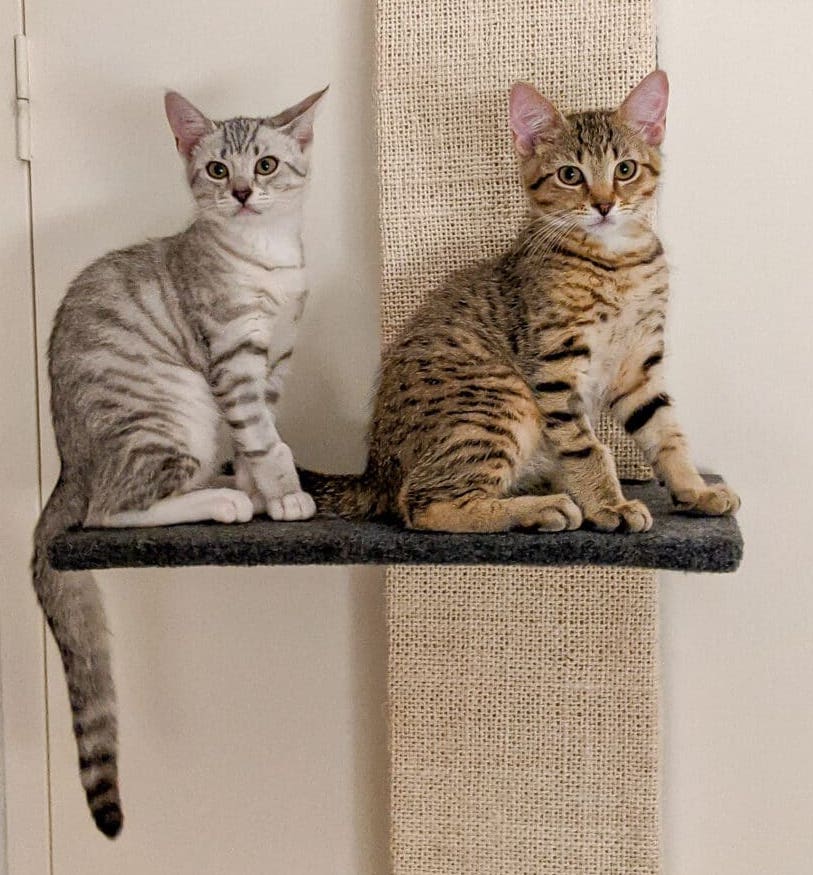
FIV positive and FIV negative Cats cohabitating
The first thing that must be considered is that all cats must be friendly and cat friendly and will not fight when introduced carefully and slowly to another cat.
The second thing to know is that pretty much everyone agrees FIV is transmitted via deep biting during mating or fighting.
There is little reall evidence to prove that it’s ok or not ok to mix positive and negative cats. Shelters, if maintained correctly do not have any transmissions as seen in the link below.
If your cat is FIV+, it is important to find a vet who is knowledgeable and understanding in this area.
Symptoms of FIV
Bearing in mind that many FIV+ cats will never exhibit any related symptoms, even if a first infection occurs, it can be many years before the cat becomes chronically ill, (if it does at all) provided each infection is promptly treated and the cat is well cared for. It is also best to minimise exposure to illness by keeping FIV+ cats indoors and separate from sick cats. Generally, a cat will live it’s normal life span without presenting any symptoms.
It is important to note, that feeding a diet that cleans their teeth is imperative. This is easily done by feeding Prescription Dental biscuits, chunks of meat to chew, whole chicken hearts, and chicken neck a few times a week. Healthy FIV cats do extremely well on a raw diet (human grade only and frozen for 3 days before feeding). If the cat becomes ill their diet may need to be reassessed. Whilst many FIV+ cats may have good teeth their whole lives, it’s not uncommon for FIV+ cats to have some tooth extractions.
The clinical signs of FIV are many and varied, and can include chronic and recurrent infections of the skin, mouth, urinary tract and upper respiratory tract, progressive weight loss and poor coat, seizures, kidney failure, certain types of cancer, neurological disease, or none of the above. FIV+ cats are more vulnerable to tooth decay and stomatitis.
How do I know if my cat is FIV positive?
Diagnosis of FIV can be made by your vet by way of a in-house snap test or a more reliable blood test. However, you may receive a false result in certain cases and follow up testing may be required later. For example, when a kitten is born to an FIV+ mother you can receive a “false positive” result where the test may show the kitten is FIV+ when they may not be. If a kitten tests positive, you may test again once they are over 6 months old for an accurate result. Also, if a cat has been infected with FIV in the last 6 months, a test may show a “false negative”. It is also extremely important to be aware of the fact that, if a cat has previously been vaccinated against FIV they will test positive, even though they do not have FIV. There is an additional test now available that will determine the difference between a cat who has been vaccinated against FIV, and a cat is genuinely FIV+.
FIV in kittens: Cornell University: “Infected mother cats transfer FIV antibodies to nursing kittens, so kittens born to infected mothers may receive positive test results for several months after birth. However, few of these kittens actually are or will become infected.”
How to prevent FIV
With FIV transmission occurring primarily via deep bite wounds, there are two simple ways to reduce the chance of infection in your healthy cat:
- Make sure your cat is desexed; ideally at a young age to minimise the risk of fighting with other cats particularly free roaming, undesexed, male cats who are the main carriers of FIV; and
- Give your cat an enriching, ‘indoors-only’ life.(3)
Can I vaccinate my cat against FIV?
When you have FIV positive cats cohabitating with negative cats, you can consider vaccinating the negative cats.
Whilst the FIV vaccine is not 100% reliable, it is still worth considering so have a chat with your vet about the pros and cons. Please do be aware that once a cat has had an FIV vaccination, they may test FIV positive on vet in house testing.
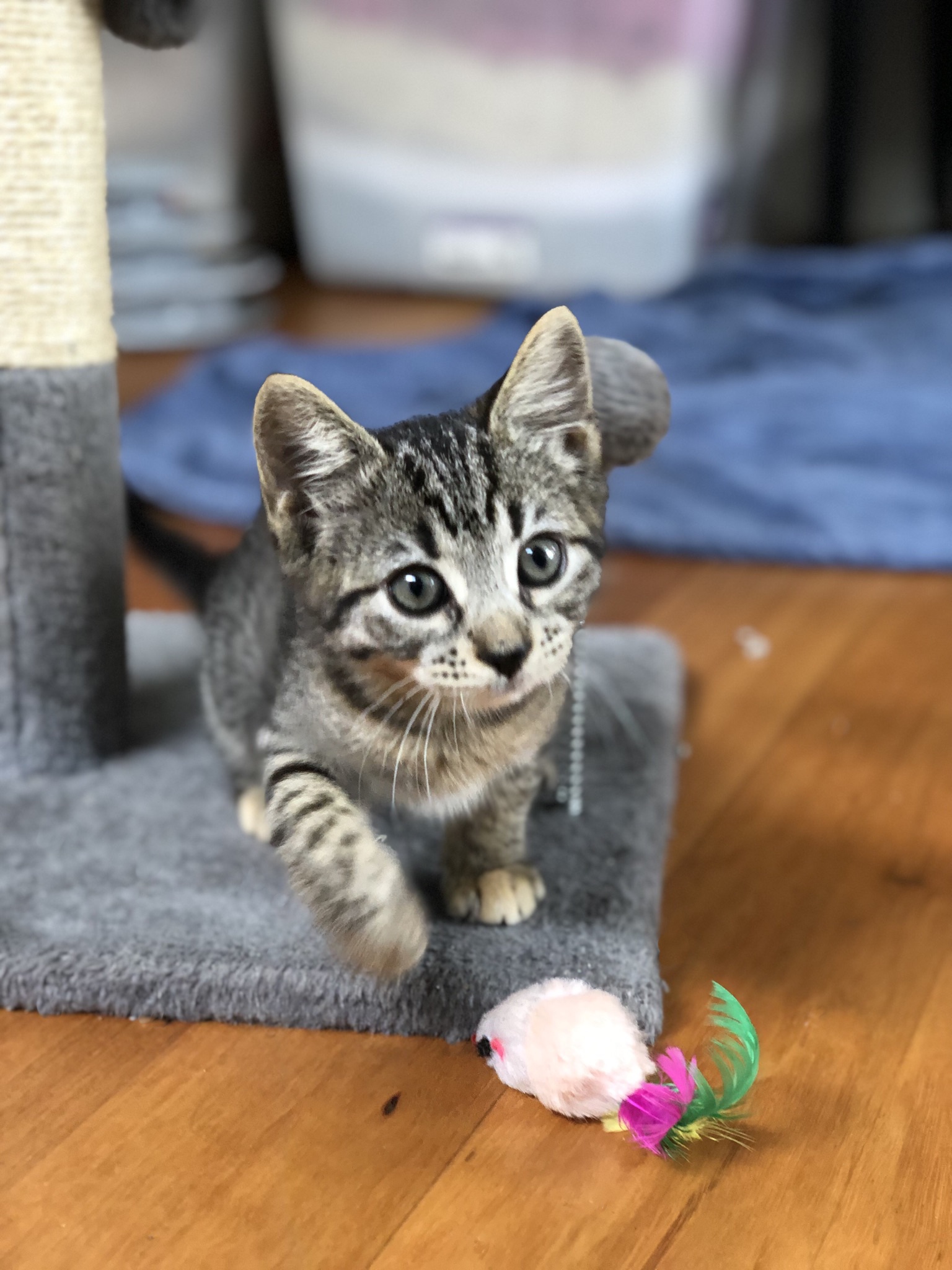
Prevention of the spread of FIV
It is very uncommon for a FIV+ cat to transmit the virus to other feline members of the household. Although the virus is present in saliva, it is extremely fragile and quickly dies after leaving its host; so unlike the highly contagious FelV, it is not transmitted by mutual grooming or the normal sharing of food bowls or litter boxes, or by a playful nip (where no blood is drawn). This is good news too for shelters that hold FIV+ cats, because the virus does not survive in the environment outside the cat’s body for more than a few seconds and is readily destroyed by most disinfectants(4). Shelters can be considered safe spaces for FIV-negative cats to share with their friendly FIV+ buddies with correct management.
While kittens can contract FIV either in utero or via their infected mother’s milk, it is rare. And as mentioned previously, the test results are not accurate until the kittens are more than six months old. The primary way FIV is transmitted is through fighting or mating that result in deep bite wounds. FIV can be transmitted via blood-to-blood or saliva-to-blood, but cannot be transmitted via saliva-to-saliva.
Caring for your FIV positve Cat
As part of a good care regime for an FIV+ cat:
- Vet checks twice a year. The vet should check their eyes, teeth and gums, skin and lymph nodes, and weight
- A nutritionally complete and balanced diet is essential
- Ongoing diet supplementation with L-Lysine is also widely recommended for immune system support; it can be sprinkled onto food
- At any sign of illness, take your cat to the vet straight away, as early treatment can prevent many problems. Antibiotics can control infections, and FIV+ cats who reach a chronic stage may rely on antibiotics more frequently.
- It is important to find a vet who is knowledgeable and understanding in this area.
In summary
To ensure your FIV+ cat leads a happy and healthy life for as long as possible:
- Keep your cat indoors only
- Provide premium quality food, preferably raw, and include L-lysine daily. Whilst many still recommend no raw, rescuers and others have been feeding FIV+ cats raw for years with excellent results. Unless there is a specific reason not to, we always feed raw.
- Ensure vet checkups at least twice a year and as needed
It is not at all uncommon for FIV+ cats to live a happy and long lives in excess of 15 years. Please consider giving an FIV+ cat a chance.
- ‘Five Myths and Facts About FIV’: http://fivcatrescue.org/fiv-myths.html
- ‘CatChat – FIV Information’: http://www.catchat.org/fiv.html
- ‘Feline Retrovirus Infection’: http://www.cliniciansbrief.com/article/feline-retrovirus-infection
- ‘Feline Immunodeficiency Virus’: http://www.vet.cornell.edu/FHC/health_resources/brochure_fiv.cfm
- More information can also be found on the RSPCA site: https://www.rspcansw.org.au/blog/animal-care-information/feline-immunodeficiency-virus-fiv-explainer/
- AWL information on FIV is found here https://www.awlnsw.com.au/latest-news/find-out-more-about-adopting-an-fiv-cat/
How can you help us help the cats?
Our Vets
CatRescue 901 would like to acknowledge our dedicated vets. We could not operate without these vets and their dedication to, and respect for, our rescued felines. Please support the vets who support rescue. See all vets click here.
Our Sponsors
CatRescue 901 would like the thank the generosity of our corporate sponsors for making our life saving work possible. We are indebted to them for their support. Please consider using their services. See all sponsors click here.
CatRescue 901 is a registered charity CFN 23215 with Tax Deductible Gift Recipient status.
ABN 47 167 228 980
